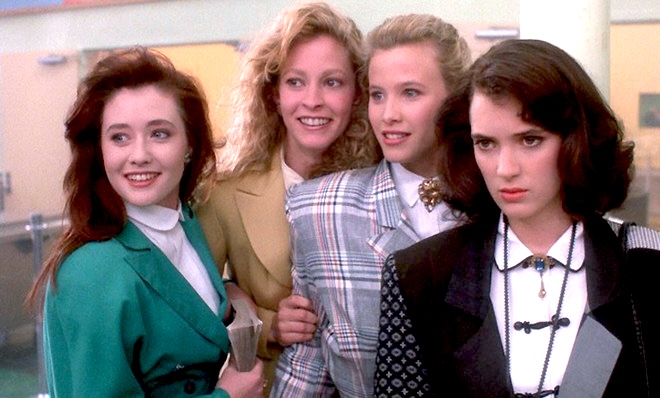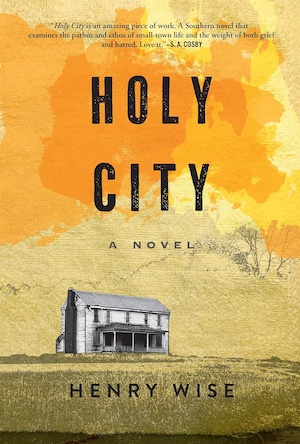Many readers became familiar with Ashley Woodfolk via her contributions to Blackout, last summer’s collaborative YA smash success co-authored by Dhonielle Clayton, Tiffany D. Jackson, Nic Stone, Angie Thomas and Nicola Yoon. In her new novel, Nothing Burns as Bright as You, Woodfolk’s prose blazes like an inferno as she tells the story of two girls whose connection flickers between best friendship and deep, complicated love. Riveting and powerful, it’s Woodfolk’s best work yet. Here, she explores how embracing vulnerability allowed her to craft a novel fueled by pure emotion.
Every writer I know has a preoccupation with a single subject, a thing they can’t help but write about. If you look at any author’s body of work, you can almost always find a thread of thematic sameness permeating their writing, an echo of something that haunts their stories like a ghost. Maybe it’s the impossible pursuit of perfection, and their characters are always striving to be the cleverest or prettiest or best version of whoever they are, but failing again and again. Maybe it’s an obsession with acceptance, and their novels examine all the ways humans can feel excluded and all the desperate things we do to feel worthy of love. As for me, I use my novels to dig into the painful inevitability of loss.
I have always been someone who feels deeply and intensely. Sadness for me is a black hole sucking at the universe; happiness, an endless fireworks display. For years I’d felt like my emotions were too much: too big, too wild or too overwhelming for other people. This was rooted in loss, in a fear of it, because I’d lost numerous friends and partners after I showed them all of me. So I learned to shrink. I cried in secret. I laughed at things that hurt my feelings. I swallowed my fear and dimmed my joy and ignored my own anger. These decisions to hide my true feelings felt like safety. It seemed like this limited, more palatable version of me was the version that made people stick around.
Enter: the pandemic. COVID-19 has forced so many of us to confront loss, literally and figuratively. We’ve lost millions of human lives, job security, money and both physical and emotional closeness with friends and family. We’ve had to cancel plans, to say goodbye to the normalcy that used to govern our lives, and we’ve lost so much time.
“I no longer had the energy to hide the real me, and as people who couldn’t take Ashley-at-full-volume fell away, I saw so many things more clearly.”
Facing loss head-on in this way forced my hand when it came to how much of myself I showed the world. I no longer had the energy to hide the real me, and as people who couldn’t take Ashley-at-full-volume fell away, I saw so many things more clearly. While I know now that my emotions were always valid—that my deep capacity for empathy and full-bodied feelings is in fact a superpower—the world being on fire stoked the flame that had always been burning inside me. And feeling my feelings in all their untamed glory made me braver when it came to my writing.
While I’m proud of all my novels, Nothing Burns as Bright as You has a rawness and vulnerability that, before the pandemic, I had been too afraid to show. My first book, The Beauty That Remains, deals with the aftermath of untimely death. Each character in that book has lost someone close to them unexpectedly, and the novel is threaded through with how music and friendship help them all grieve. When You Were Everything is a novel about a friendship breakup, and what it’s like to slowly lose the person who knows you best, in a way you can’t seem to stop. And in my series, Flyy Girls, each character loses something too: their reputation, a brother, their innocence, a dream.
In all of these novels, I couch the feelings of my characters in very concrete, understandable devices. There is always a reason for their sadness, an explanation for their obsessions, an answer to all their questions. I think this was just another way I was hiding. In my latest novel, I hide nothing.
“Once I let go of rationality and leaned fully into what comes naturally to me—feeling—this book poured out of me.”
The experience of writing Nothing Burns as Bright as You was unlike writing any of my other books. Once I let go of rationality and leaned fully into what comes naturally to me—feeling—this book poured out of me. It is a story that shows what it feels like to be a troublemaker, to be a Black girl, to be in love with your best and only friend. It is about the push and pull of codependency, recognizing toxicity in others and in yourself, learning your worth no matter the cost. It’s about loss—of innocence, of expectations, of relationships you want to last forever. And it examines my own latent queerness, something I had ignored and suppressed for years. With this novel, I was finally able to grieve the queer girlhood I never got to fully experience without the filter that characterized my earlier work. The result is the most emotionally honest novel I’ve ever written.
What I learned over the course of the pandemic, in therapy and through writing this book is that while my feelings are real, they are my responsibility and no one else’s. It is my right to feel whatever I feel fully, but it is also my job to choose how I allow my feelings to affect others. Learning to separate feelings and behavior has been key to identifying and healing some of my own toxic behaviors. I now know it was often my reactions, not my feelings, that played a role in some of my most painful relationship losses, and I hope this book can be equally illuminating for readers.
Emotions don’t always make sense, but before Nothing Burns as Bright as You, I was afraid to write a character who felt as wildly as I did, afraid she would be brushed off or misunderstood. Sometimes you love a person just because they love you, you make decisions because they feel right in your gut, you change the course of your whole life because of a single sentence someone says. I wanted to write fearlessly—to write a novel that was full of pure, maybe volatile, but always true feeling. I hope I succeeded.
Read our starred review of Ashley Woodfolk’s ‘Nothing Burns as Bright as You.’
Author photo of Ashley Woodfolk courtesy of Ashley Woodfolk.







